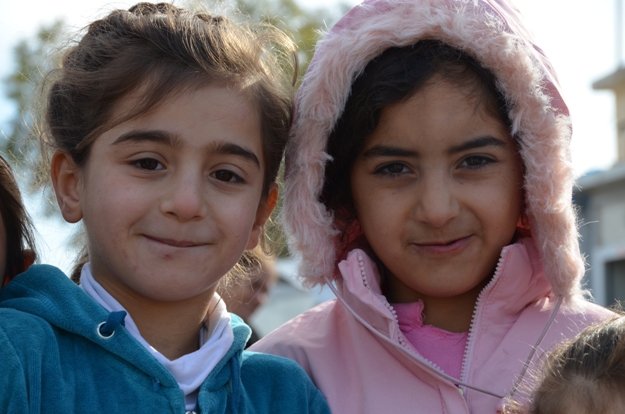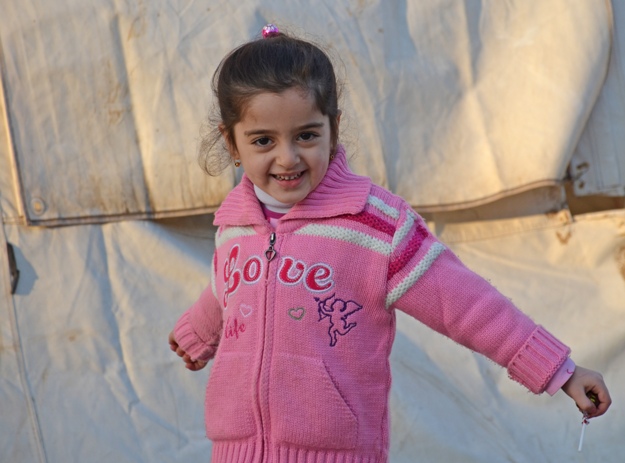|
Patriarch calls on UN Security Council for urgent, comprehensive action to help, protect Christian refugees
Tuesday, March 31, 2015
On March 27, 2015, at the invitation of the government of France, Patriarch Louis Sako I--worldwide leader of the Chaldean Church--addressed the UN Security Council which was in special session to discuss the persecution of Christians in the Middle East.
Noting that "the Islamic extremist groups refuse to live with non-Muslims" and "are persecuting and uprooting them from their homes and erasing their history," the Patriarch called for the "liberation of all Iraqi cities and for us Christians, Yezidis and Shabaks, especially the city of Mosul as well as the towns in the Nineveh plain and villages; providing an International Protection for their inhabitants, who were forced to be displaced from their homes (Secure Zone); and promulgating a Real Estate and Property Law that ensure their rights in their lands, and enabling them to return home and resume their lives in a normal way."
Ladies and Gentlemen,
As you may know, this year is the centenary of the massacres
against Christians in 1915. Now a hundred years later, we are living a similar
catastrophic situation, which pushes many families to leave the country. It is
a big loss for all. Frankly, the so-called Arab Spring impacted negatively on
us. While if we had the opportunity of working in harmony with the mosaic of
religions and ethnic groups in our region, there would have been a driving
force in the region towards peace, stability and progress.
From this tribune, I would like to convey a message inspired
by the spiritual and humanitarian values: The positive coexistence, on the
basis of justice and peace in the spirit of love and citizenship, should remain
at the upper level of priorities for the Security Council and the United
Nations.
With regards to my country, I call for supporting the
Central Government and the Regional Government of Kurdistan towards the
liberation of all Iraqi cities and for us Christians, Yezidis and Shabaks
especially the city of Mosul as well as the towns in the Nineveh plain and
villages; providing an International Protection for their inhabitants, who were
forced to be displaced from their homes (Secure Zone); and promulgating a Real
Estate and Property Law that ensure their rights in their lands, and enabling
them to return home and resume their lives in a normal way. There is also a
responsibility for the Central Government to compensate them for the damages
incurred.

The major problem lies in understanding the different
factors of state: religion, citizenship, individuals, community, the role of
woman and the national education, in order to live together in peace and
respect.
The Islamic extremist groups refuse to live with
non-Muslims. They are persecuting and uprooting them from their homes and
erasing their history (the memory). It is an ideological crisis and a way to
monopolize the power, disabling institutions and restricting freedom.
This horrifying situation needs to establish principles,
based on international laws, aiming to prevent this catastrophic discrimination
against the human being and mankind.
At the same time, it is important to understand that these
terroristic acts should not be generalized to all Muslims. In fact, there is a
silent and peaceful majority of Muslims that reject such politicization of the
religion; they are accepting to live a common live with others within the civil
state and according to the law.
Peace and stability cannot be achieved solely by military
actions; as they are unable to dismantle this clustered way of thinking that
destroys human beings and stones -- the civilization.
This indicates that the international community including
the Arab League and the Conference of the Islamic Countries are required to
take legal decisions and definitive measures. This could be achieved by
adopting political, cultural and educational solutions. These solutions should
be appropriate to protect the national mosaic represented by individuals,
persons and groups regardless of their religion and ethnic background. They
have to safeguard the rights of the all citizens and strengthen the relations
among them.

Particular attention should be paid to a more significant
threat. Millions of children and young people are deprived of schools and
education. Millions of refugees are being in camps without care and attention.
The growing frustration, unemployment and poverty could easily develop an
atmosphere of revenge and extremism. Therefore there is the necessity to take
care of these refugees responding to their needs and decreasing their pain.
A practical process is proposed to get out of this vicious
cycle:
- To
claim, through the United Nations, the executive policy-based on updating
of the constitutions and laws. This would promote justice, equality and
dignity for all, as citizens without discriminating a group in a favour of
another. It is imperative that our countries acquire civil governments
where equality is granted among all citizens. These governments are
responsible for the protection of all individuals and preserve the
integral rights of all their citizens.
- To
encourage religious leaders so as to adopt a moderate discourse that
deepens the sense of citizenship. They have to adopt a culture of
belonging to their country and not exclusively to their religious
denominations or tribes. A necessary factor is the reform of educational
programs that would enhance the principles of respect between citizens and
promote tolerance and communication. This would condemn division, hatred and
spirit of revenge. All this will protect generations from the consequences
of extremism, violence and terrorism. In order to achieve this, the
Religious Hierarchy has to present an appropriate exegetic explanation of
the religious texts, with zero tolerance to extracting the religious texts
from their contexts.
- To
pass a law that criminalizes all states and individuals who support
terrorist groups financially or intellectually or with arms, and held them
accountable, and consider their acts as a crime towards social peace.
- To
promote the development of organizations for human rights and civil
society. These organizations should be supported such that they don't only
have a consulting role, but rather an executive one and thus on both
levels: the regional and the international one.
ACN photos: Christian refugees in Erbil
|
|
|